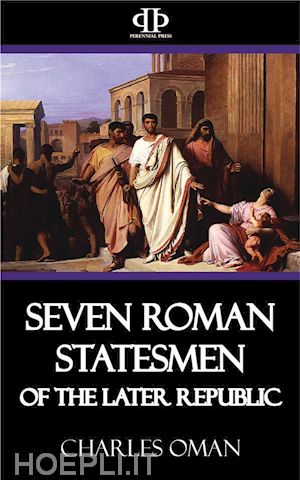From the end of the Second Punic War down to the time of the Gracchi, Roman history is very monotonous and uninteresting to the reader. It is little more than the record of the haphazard building up of an empire, by the unintentional and unsystematic conquest of various disconnected districts round the Mediterranean. The wars are uninteresting, because they are waged by men who are little more than names to us; the commander, be he a Plamininus or a Mummius, disappears from the historical stage when his consulship is over, and is lost to view once more in the ranks of an impersonal senate. Even the younger Scipio Africanus, who has to serve as a hero in these times for want of a better, soon palls upon us; he stays in our mind only as a vague impersonation of civic virtue and somewhat cold-blooded moderation.
After B.C. 133 all is different; at last we have living, interesting, individual men to deal with; the names of Tiberius Gracchus, or Sulla, or Caesar are not remembered merely as connected with files of laws or lists of battles. At the same time both the internal and the external history of Rome becomes of absorbing interest. Externally the question arises whether the sporadic and ill-compacted empire built up in the last hundred years shall endure, or whether it shall be swept away by the brute force of the Cimbri and Teutons, or carved in two by Mithradates. Looking at the growing imbecility of Roman generals in that day, and the growing deterioration of Roman armies, it is not too much to say that, but for the intervention of two great personalities, the Roman Empire might have been swept away. If Marius had not appeared, a few more generals like Mallius and Caepio would have let the Cimbri and Teutons into Central Italy, and the exploits of Alaric in A.D. 410 might have been perpetrated by his remote ancestors. Similarly, but for Sulla the Nearer East might perchance have passed back, seven hundred years before the appointed time, into the hands of Oriental rulers, and have shared the fate which overtook Hellenistic Babylon and Bactria, by losing its touch with Western civilization under a dynasty almost as thinly veneered with Greek culture as the Parthian Arsacidae or the Bactrian Scyths...












